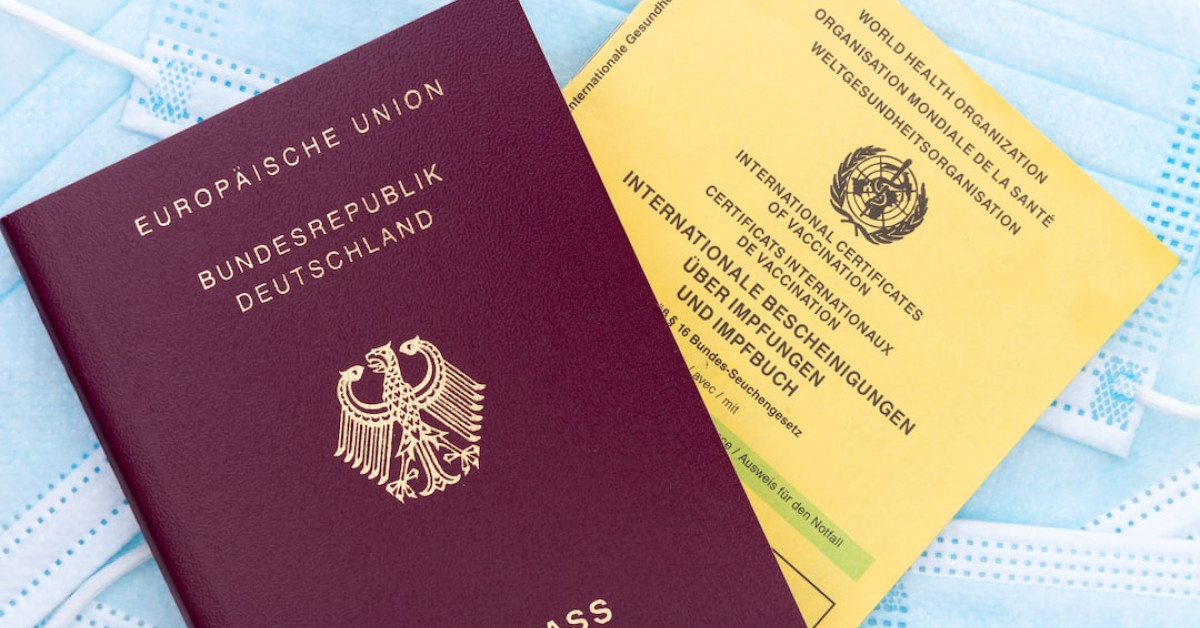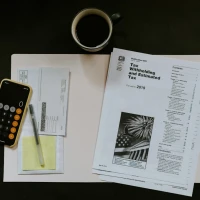In today’s interconnected world, the congruence of personal identification documents is not just a matter of bureaucratic formality; it’s a crucial aspect of your financial identity. Does my passport address have to match my license? This is a question that might seem trivial at first glance, yet it carts behind it a wagon of legal and financial implications. Whether you’re an avid traveler, a business professional, or someone who’s just looking to streamline their paperwork, understanding the importance of aligning the addresses on your passport and driver’s license is a step towards ensuring your transactions and interactions within the financial realm are seamless and void of complications.
Navigating through a maze of identification verification processes can be daunting. Yet, with identity fraud on the rise and financial institutions tightening their verification procedures, the alignment of your identification documents — particularly the address on your passport and driver’s license — has never been more critical. In this comprehensive guide, we will delve into the importance of maintaining uniformity across these documents, unravel the ramifications of discrepancies, and offer actionable insights to keep you a step ahead in your financial journey.
The Intersection of Identification and Financial Legitimacy
Your passport and driver’s license serve as cornerstones of your personal identification. But their role extends far beyond mere recognition; they are pivotal in shaping your financial footprint. Does my passport address have to match my license could be the deciding factor in numerous financial scenarios such as loan approvals, opening new bank accounts, international transactions, and even during routine checks by financial institutions or government bodies.
Establishing Financial Identity
- Consistency in Personal Data: Both your passport and driver’s license are primary forms of ID that provide proof of your identity and residency. Inconsistent information can lead to unnecessary red flags being raised.
- Credit Checks and Background Verification: Credit bureaus and lenders might cross-verify the address details on different documents. Discrepancies can complicate or delay the process.
- International Travel and Transactions: When abroad, your passport is your primary form of identification. Aligning the address with your domestic ID prevents confusion and solidifies your financial credibility.
Implications of Mismatched Addresses
Discrepancies between your passport and driver’s license addresses can lead to a range of issues:
- Suspicion of Fraud: Inconsistencies are often mistaken as warning signs of identity theft or fraud.
- Delays in Document Renewal: Renewing your passport or driver’s license could become a drawn-out process if the details don’t match.
- Obstacles in Legal and Financial Endeavors: Whether you’re applying for a mortgage, a visa, or undergoing a government audit, non-matching addresses can cause unnecessary scrutiny.
Harmonizing Passport and License Addresses: A Strategic Move
Fostering alignment between your passport and driver’s license is more than a measure of tidiness—it’s a calculated approach to bolster your financial persona. Does my passport address have to match my license? The simple answer is, while not always legally required, it’s highly advisable. How can one go about this process, and what are the benefits of doing so?
Benefits of Address Alignment
- Streamlined Verification: Synchronizing addresses simplifies the process of identity verification, aiding in smoother financial transactions.
- Risk Mitigation: A unified address across documentation greatly reduces the risk of being caught up in identity verification mix-ups or fraud alerts.
- Enhanced Credibility: It displays a level of organization and attentiveness that financial institutions value.
Steps to Ensure Alignment
- Update Address Promptly: Whenever you move, make sure to update the address on all identification documents as soon as possible.
- Check for Consistency: Regularly review your documents to ensure that all details are accurate and match across the board.
- Understand the Process: Learn about the specific requirements and processes for updating your address on your passport and driver’s license. Each country and state might have different procedures.
Navigating Legal Requirements
In many jurisdictions, it is mandated by law to have your current address updated on your driver’s license. While this may not be a direct requirement for passports, for ease of travel and to avoid discrepancies, it is strongly suggested to keep all personal data consistent.
Address Misalignment: Identifying and Rectifying Issues
In the instance where your passport address does not align with your license, immediate steps should be taken to rectify the situation. Does my passport address have to match my license may seem like a question of preference, but in reality, it’s one of fiscal responsibility.
Identifying Discrepancies
- Look over each document carefully and compare.
- Confirm that all other personal details are consistent.
Reacting to Misalignment
- Contact the Issuing Authority: Reach out to the passport office or the Department of Motor Vehicles (DMV) to inform them of the discrepancy.
- Gather Supporting Documentation: Collect any legal documents that validate your current address.
- Follow the Formal Process: Submit a change-of-address application and the necessary documentation as per the prescribed method.
Timeline Considerations
- Plan Ahead: Be aware that updating your address on formal documentation can take time.
- Avoid Peak Seasons: Try to update your information during non-peak periods to ensure quicker processing.
Case Studies: The Real-World Impact of Address Alignment
Illustr15 mil pesos mexicanos a dolarestive examples can offer insights into the tangible benefits and consequences relating to the question at hand. Does my passport address have to match my license? Investigating real scenarios can underscore the practical implications.
Case Study Analysis
- Jane’s Mortgage Application Delay: A homebuyer’s loan approval was stalled due to mismatched address information.
- Travel Troubles for Tom: A frequent flyer faced enhanced scrutiny and questioning due to differing addresses during international travel.
- Anita’s Audit Alarm: An entrepreneur underwent a rigorous tax audit after authorities noted discrepancies in her identification documents.
Learning from Experience
- Timeliness is Key: The issues often stem from delayed updates to address information.
- Communication with Authorities: Engaging with issuing bodies can prevent misunderstandings and speed up resolution processes.
- Vigilance and Verification: Regularly checking your own documents can prevent such setbacks.
Best Practices for Maintaining Accurate Addresses
Having explored the significance of and path to aligning your passport and driver’s license addresses, let’s consolidate our untipo de cambio dólar a peso mexicanorstanding by enumerating some best practices. Remember, the question isn’t just, does my passport address have to match my license, but rather, how can I ensure that my financial identity is secure and respected?
Regular Personal Document Audit
- Conduct Frequent Reviews: Schedule routine checks of your personal documents to catch discrepancies early.
- Use a Checklist: Create a list of all documents where your address is listed to ensure nothing is overlooked.
- Stay Informed: Keep abreast of any changes in address-related regulations for your passport and license.
Embracing Digital Tools
- Tracking Apps: Utilize smartphone applications that can remind you to update your address across all platforms.
- Electronic Notifications: Sign up for e-reminders from the passport office or DMV for renewal deadlines.
Engagement with Financial Institutions
- Open Communication: Inform your bank and any other financial entities of address changes directly and promptly.
- Document Updates: Provide updated documentation to financial institutions to maintain consistency in their records.
Partnering with Legal Advisors
- For complicated situations, it might be wise to seek professional advice to navigate through the bureaucratic intricacies.
Conclusion: The Integration of Identity and Finance
In the modern age of digital transactions and international mobility, the smallest details can have the largest impact. As we’ve dissected the intricate question of does my passport address have to match my license, we understand that this alignment is a strategic move designed to maximize legitimacy in the financial realm. Consistency in your personal information fortifies confidence among lenders, banking institutions, and legal authorities, thereby safeguarding your financial activities and ensuring smoother operations in various life scenarios. By following the discussed guidelines, not only can you prevent identity-related confusion, but you can also portray a well-managed, trustworthy financial identity.
Regularly updating personal documents, staying vigilant about address changes, and engaging with legal and financial entities—all these moves are pieces of a larger puzzle of maintaining a sound financial life. Within the choreography of our daily activities, it’s critical to not let such small yet significant elements as our address details to fall out of sync. Remember, synchronizing the address across your identification documents is more than an administrative task; it’s an investment in your financial well-being and personal credibility.









